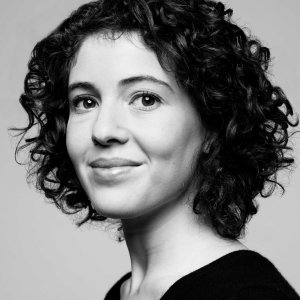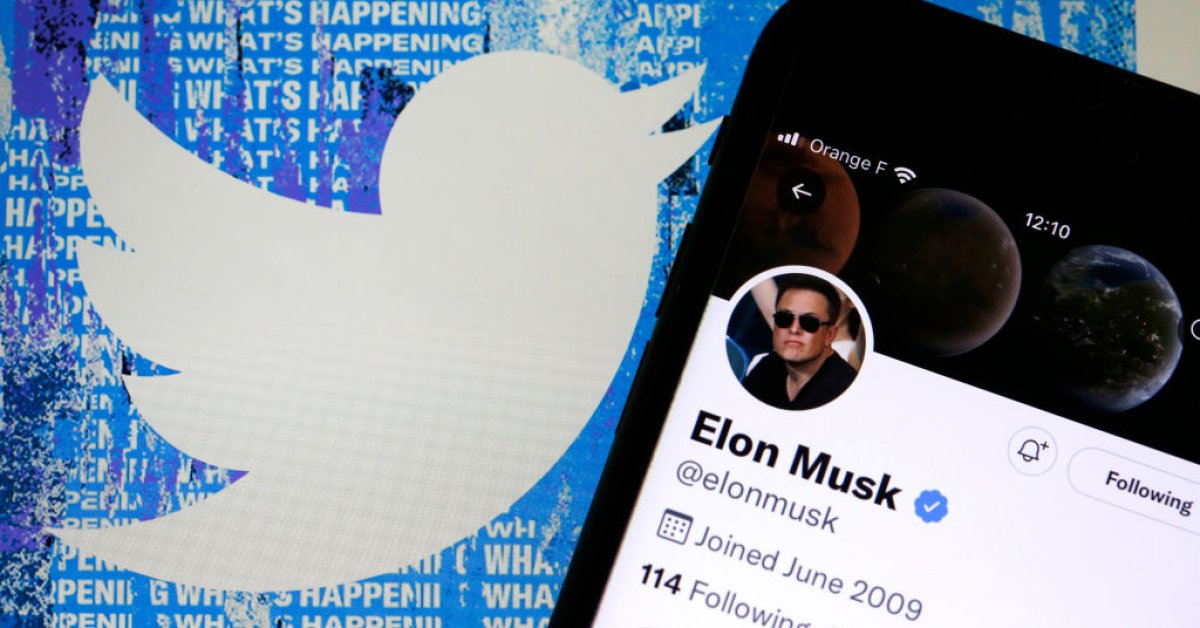chemarin
Será en Octubre
- Desde
- 20 Oct 2013
- Mensajes
- 25.677
- Reputación
- 57.881
En medio del debate que se ha creado en Estados Unidos en torno a la creación de un «Ministerio de la Verdad» dependiente del Departamento de Seguridad Nacional, los columnistas a sueldo de los plutócratas han encontrado que, después de todo, eso de que cualquiera puede decir lo que le dé la gana en la palestra pública es un disparate. Lo asombroso es que los encargados de atacar la libertad de expresión sean periodistas, el gremio que tradicionalmente la ha defendido con uñas y dientes.
Y para denigrar esa base esencial de nuestras democracias se ha encontrado la más cansina de las asociaciones: la libertad de expresión es racista. En concreto, y según la periodista de la revista «Time» Charlotte Alter, la libertad de expresión es una «obsesión» del hombre blanco.

El ataque de Alter, en forma de columna, se centra, naturalmente, en Elon Musk, el magnate que acaba de comprar la red social Twitter, presuntamente para convertirla en una plataforma realmente libre y eliminar las prácticas de totalitarismo «pogre» que la han hecho famosa con sus censuras, expulsiones y manipulaciones varias.
A Alter sencillamente no le entra en la cabeza cómo nadie puede poner un montón de dinero encima de la mesa para respaldar la libertad de expresión de otras personas, de cualquier persona. No tiene sentido. Si se trata de dar dinero a causas altruistas, se pregunta Alter, ¿por qué no dedicarlo a la justicia social o a la no discriminación?
La idea de que cualquier pelagatos esté autorizado a dar su opinión en la arena pública le parece a la periodista una extravagancia da repelúsnte como comprar bemoles Fabergé. “¿Por qué Musk se preocupa tanto por esto? ¿Por qué a un tipo que ha superado los límites de la fabricación de vehículos eléctricos y sondeado los límites de los vuelos espaciales comerciales le importaría quién puede decir qué en Twitter?”.
Pero Alter tiene la respuesta a su propia pregunta, más que nada porque es la respuesta estándar en Estados Unidos a cualquier pregunta: el privilegio blanco.
La censura, para los nuevos mandarines, lejos de ser la supresión de ideas disidentes que amenazan a los poderosos, es un simple mecanismo de control para eliminar ideas nocivas o narraciones falsas. “Desinformación”, como el título que han propuesto para el nuevo Ministerio de la Verdad.
Por supuesto, quién decreta qué idea es nociva y qué narrativa es la correcta es el mismo estamento interesado en suprimir todo lo que ponga en peligro su poder, como entendieron hace siglos quienes redactaron la Primera Enmienda de la Constitución de los Estados Unidos y los defensores de ese mismo principio fundamental en el mundo entero.
Pero lo que convierte en noticia la columna de Alter es que no es una francotiradora aislada: ya los principales medios de comunicación de Estados Unidos se han abonado a esa tendencia que aborrece la libertad y que, como ha sucedido con tantas otras que han acabado en nuestras instituciones, ofrecen un ominoso panorama de nuestro futuro inmediato.
Una columnista de 'Time' denuncia la libertad de expresión como una 'obsesión' del hombre blanco
Curioso como las élites manipulan con el tema del racismo, los más pogre acaban pensando que querer libertad de expresión es manifiesto racismo. A esta gente hay que eliminarla físicamente, igual que se hace con las fieras.
Hablando de Musk y de la censura en Twitter, la censora en jefe no es blanca, así las élites vuelven a reforzar el mensaje para los orates: si quieres ser libre es que eres un puñetero racista.

Y para denigrar esa base esencial de nuestras democracias se ha encontrado la más cansina de las asociaciones: la libertad de expresión es racista. En concreto, y según la periodista de la revista «Time» Charlotte Alter, la libertad de expresión es una «obsesión» del hombre blanco.

El ataque de Alter, en forma de columna, se centra, naturalmente, en Elon Musk, el magnate que acaba de comprar la red social Twitter, presuntamente para convertirla en una plataforma realmente libre y eliminar las prácticas de totalitarismo «pogre» que la han hecho famosa con sus censuras, expulsiones y manipulaciones varias.
A Alter sencillamente no le entra en la cabeza cómo nadie puede poner un montón de dinero encima de la mesa para respaldar la libertad de expresión de otras personas, de cualquier persona. No tiene sentido. Si se trata de dar dinero a causas altruistas, se pregunta Alter, ¿por qué no dedicarlo a la justicia social o a la no discriminación?
La idea de que cualquier pelagatos esté autorizado a dar su opinión en la arena pública le parece a la periodista una extravagancia da repelúsnte como comprar bemoles Fabergé. “¿Por qué Musk se preocupa tanto por esto? ¿Por qué a un tipo que ha superado los límites de la fabricación de vehículos eléctricos y sondeado los límites de los vuelos espaciales comerciales le importaría quién puede decir qué en Twitter?”.
Pero Alter tiene la respuesta a su propia pregunta, más que nada porque es la respuesta estándar en Estados Unidos a cualquier pregunta: el privilegio blanco.
La censura, para los nuevos mandarines, lejos de ser la supresión de ideas disidentes que amenazan a los poderosos, es un simple mecanismo de control para eliminar ideas nocivas o narraciones falsas. “Desinformación”, como el título que han propuesto para el nuevo Ministerio de la Verdad.
Por supuesto, quién decreta qué idea es nociva y qué narrativa es la correcta es el mismo estamento interesado en suprimir todo lo que ponga en peligro su poder, como entendieron hace siglos quienes redactaron la Primera Enmienda de la Constitución de los Estados Unidos y los defensores de ese mismo principio fundamental en el mundo entero.
Pero lo que convierte en noticia la columna de Alter es que no es una francotiradora aislada: ya los principales medios de comunicación de Estados Unidos se han abonado a esa tendencia que aborrece la libertad y que, como ha sucedido con tantas otras que han acabado en nuestras instituciones, ofrecen un ominoso panorama de nuestro futuro inmediato.
Una columnista de 'Time' denuncia la libertad de expresión como una 'obsesión' del hombre blanco
Curioso como las élites manipulan con el tema del racismo, los más pogre acaban pensando que querer libertad de expresión es manifiesto racismo. A esta gente hay que eliminarla físicamente, igual que se hace con las fieras.
Hablando de Musk y de la censura en Twitter, la censora en jefe no es blanca, así las élites vuelven a reforzar el mensaje para los orates: si quieres ser libre es que eres un puñetero racista.


